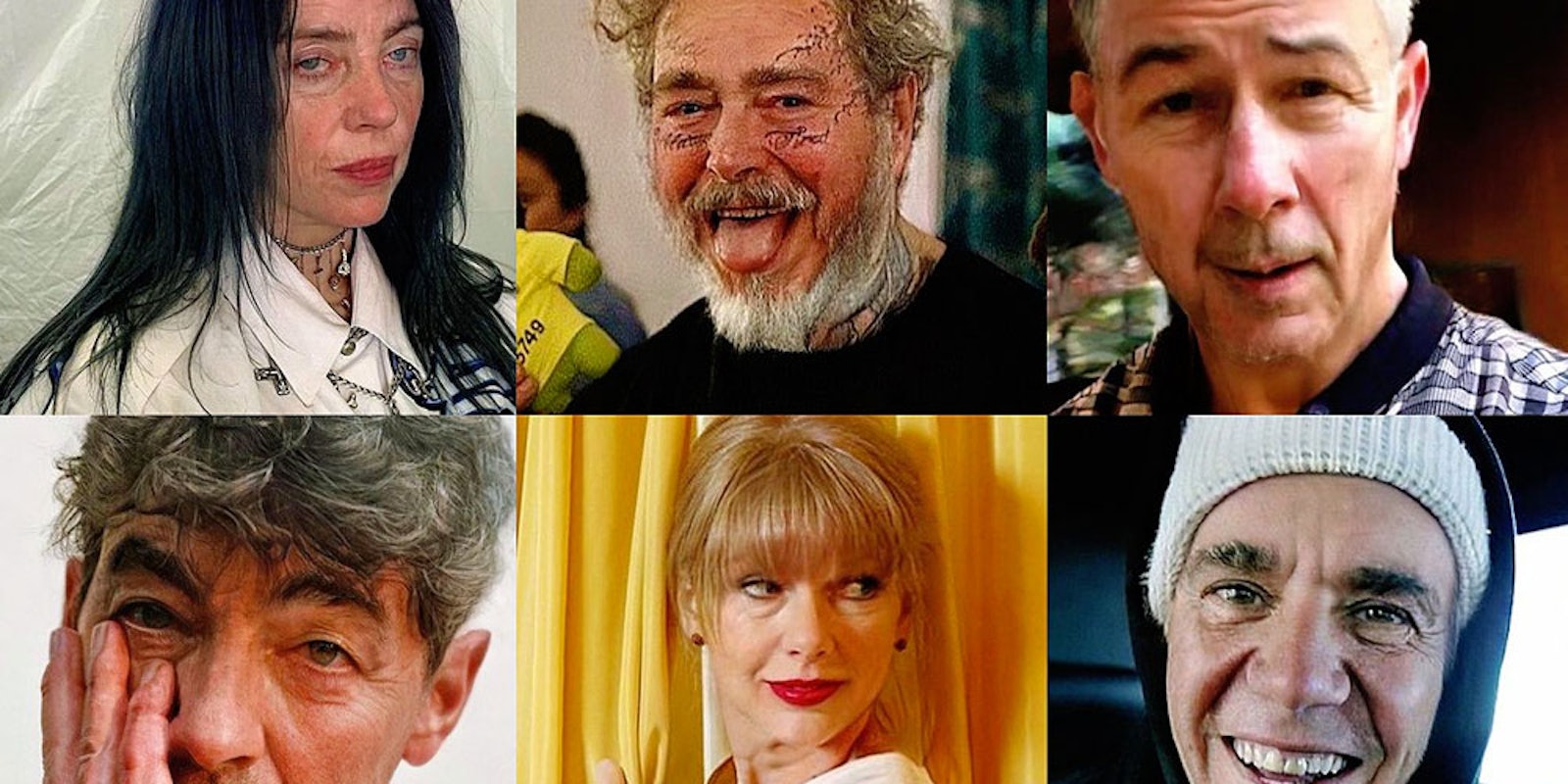The FaceApp Challenge is taking the internet by storm by turning your favorite celebrities into senior citizens.
FaceApp, a free mobile application available for both Android and iOS, uses artificial intelligence to age any selfie by a few decades, revealing what you might look like in the distant future.
Over the past several days, celebrities and internet users alike have used the app–produced by a small team of developers in Russia–and flooded Facebook, Twitter, and Instagram with their elderly images.
NBA player Dwayne Wade revealed himself as a grandpa on Instagram Tuesday, receiving hundreds of thousands of likes in the process.
https://www.instagram.com/p/Bz-mBhvHdRc/?utm_source=ig_web_copy_link
Over the weekend, rapper Iggy Azalea argued that she would undoubtedly “age like milk” due to her whiteness after a fan used the app on her likeness.
https://twitter.com/IGGYAZALEA/status/1150155585888739328
The aged photos spread on Twitter under the #FaceAppChallenge hashtag. Major brands and companies were also predictably quick to jump on the bandwagon.
Universal Music Canada applied the filter onto the biggest artists in the music industry, including rapper Post Malone and pop star Ariana Grande.
We didn’t have to, but we did it anyway 🧓🏼#faceappchallenge pic.twitter.com/y3VEM91XBz
— UMUSIC (@umusic) July 16, 2019
A slew of sports teams and other corporations piled on the old-age filter as well.
Old Sheldon.#FaceAppChallenge pic.twitter.com/Tde1t7vhKU
— Warner TV España (@warnertves) July 16, 2019
Ageless swagger.#FaceAppChallenge ✖️ #BornToBaseball pic.twitter.com/D8oivD8snJ
— Cincinnati Reds (@Reds) July 16, 2019
https://twitter.com/nyknicks/status/1151205305423978497
This is not the first time FaceApp has gone viral though. The app also has a “gender-swapping” feature as well as the ability to make people appear younger.
Even though people are having fun with the old-age filter, not all of the app’s features have been as well received. In 2017, FaceApp introduced a feature to change the race of its users, allowing them to choose between “Asian, Black, Caucasian, and Indian.” That filter was removed shortly after launch due to backlash.
That same year, the company’s CEO apologized after a filter designed to make people “hot” significantly lightened users’ skin and made them appear white.
READ MORE:
- FaceApp’s race-changing filters under fire for promoting blackface
- FaceApp is ‘deeply sorry’ for its skin-whitening ‘hot’ filter
- Trolls are trying to rebrand David Hogg as a gun-loving woman
Got five minutes? We’d love to hear from you. Help shape our journalism and be entered to win an Amazon gift card by filling out our 2019 reader survey.
H/T PopSugar


